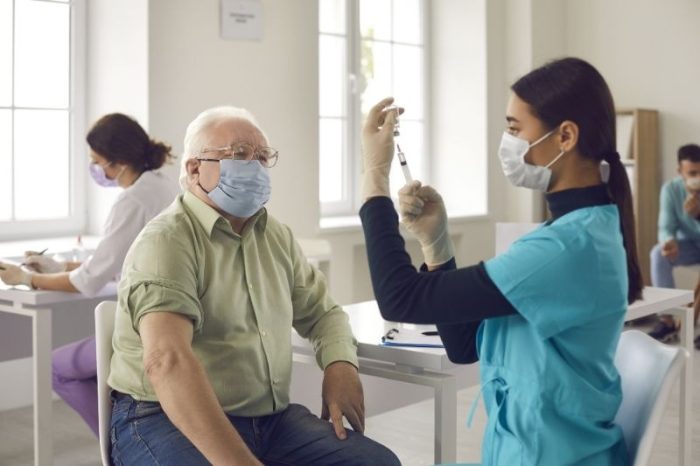The COVID-19 vaccines (there are several types) are probably the most important senior-related topic of this new year. Illnesses caused by the coronavirus are especially dangerous for seniors, often resulting in more acute symptoms, longer recovery times and more frequent hospitalizations. Worst of all, the death rate increases sharply with age, particularly after 65. These facts make immunization all the more important to seniors.
In addition to protecting life and physical health, effective immunization can lead to a dramatic improvement in the quality of life for many seniors. If social-distancing guidelines have been followed, seniors have missed important events for months; family dinners, birthday parties, weddings, hugs from children and grandchildren have all been missed. Residents of assisted living facilities or other seniors-only communities may have been totally isolated. All in all, the vaccines promise a brighter future.
Unfortunately, a good deal of misinformation has come to light about these vaccines. Some seniors are hesitating about immunization and this could be a costly mistake. Two things you should highly consider doing are:
- Listen to your doctor. If you do not trust your doctor’s advice, you should get another doctor. You will have trouble finding any physician who will tell you not to take the vaccine unless you have a valid medical reason. Remember, your doctor went to four years of college, four years of medical school, at least two to three years of residency training and may have been in practice for many more years. Whose medical advice do you value most—your doctor’s, your “gut feeling” or someone who has no medical training?
- Consider the alternative. If you decline immunization, you are putting yourself at risk, but also those close to you. In the coming months, the economy and business conditions are going to be tough enough without a serious illness. Many people depend on you at home, in the community and possibly at work. Immunization will protect against an illness that often lasts for weeks, not a day or two. The expected duration is about two weeks, and refusing immunization puts at risk all those who depend on you economically, personally and socially. This is true, even if they have taken the vaccine themselves and are immune to infection. Believe it or not, they might miss you. Lastly, immunization is free, while the disease may be very expensive.
The first responses have been encouraging. On January 4th, hundreds were turned away from a vaccine distribution site at Daytona Stadium, as it reached capacity for its 1,000 allocated doses before it was even opened. Seminole was one of eight Florida counties to receive a small (3,000 dose) allocation as a pilot program. The available appointment slots were taken in less than an hour. At least for now, the main problem is getting access to the vaccine, not in convincing people to take it. Vaccine availability is increasing daily, but now (early January) this situation is very fluid.
The Florida Department of Health (FDOH) is in charge of receiving the vaccine for community distribution. This state agency is working with county governments to effectively allocate and administer the vaccine. This system may vary somewhat from one location to the next, so check with your local health department for up-to-date information about vaccine availability. The best place to do this is the internet. Enter a search term like “COVID vaccine Volusia county Florida” (or any other county name) and you will find the information and a way to make an appointment for free immunization. In addition, the Veterans Administration is distributing the vaccine through some of its outpatient clinics including the VA clinic in The Villages and the Jacksonville clinic. Florida is also beginning to distribute the vaccine to Publix Supermarkets, making it possible to be immunized while on a shopping trip. As of this writing, this is available in Citrus, Hernando and Marion counties, but the program will likely expand as soon as supply allows.
Vaccine sites as of Jan. 7, 2021 are listed here.
Our national and state governments, the medical community and local health agencies are doing all they can to make immunization available as soon as possible. Each senior has the responsibility of deciding when (and if) they will be immunized, but the sooner you are, the sooner you can return to a near-normal lifestyle.

